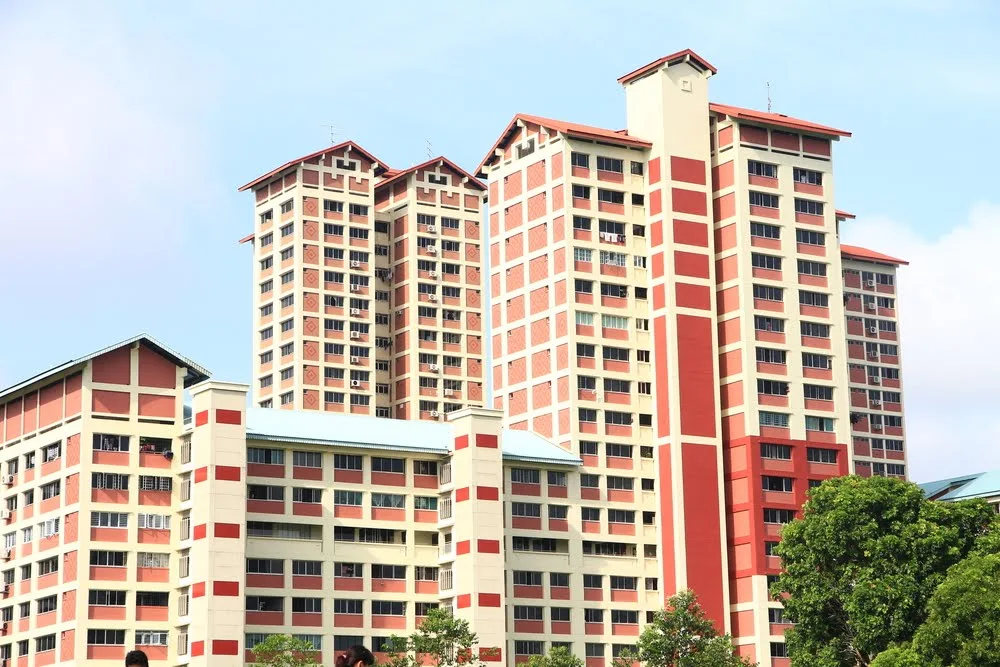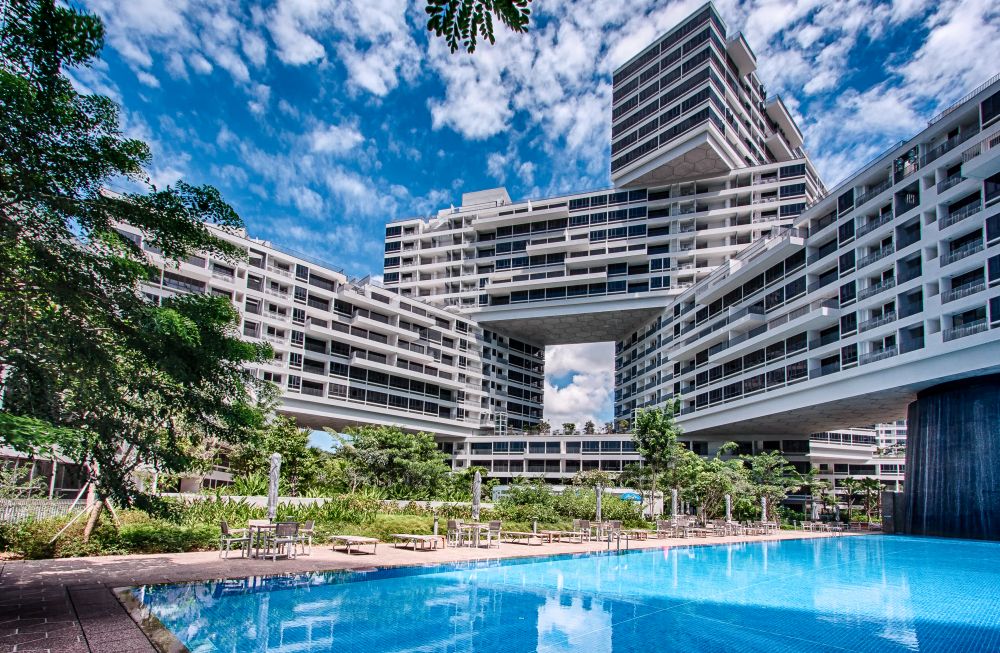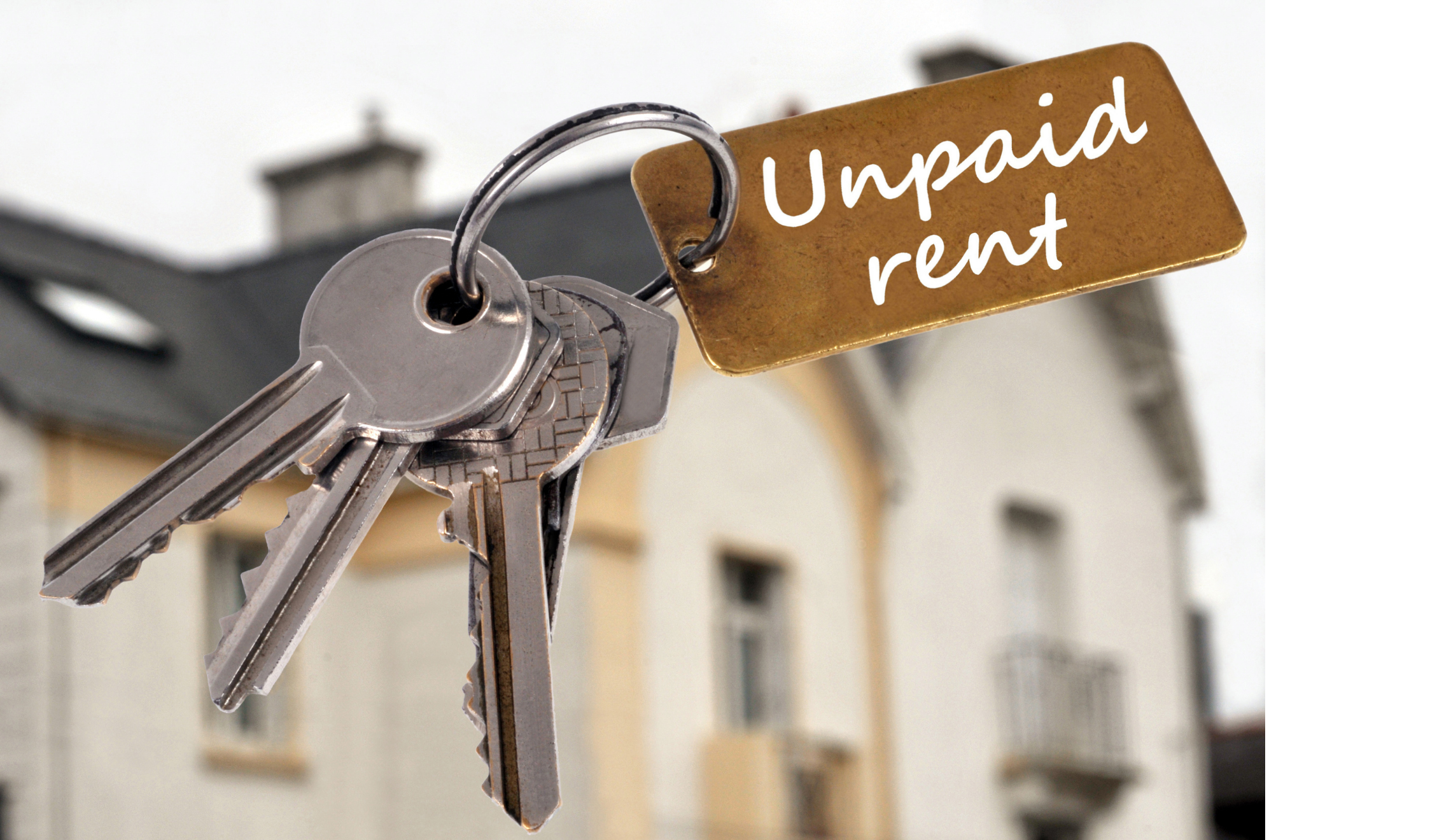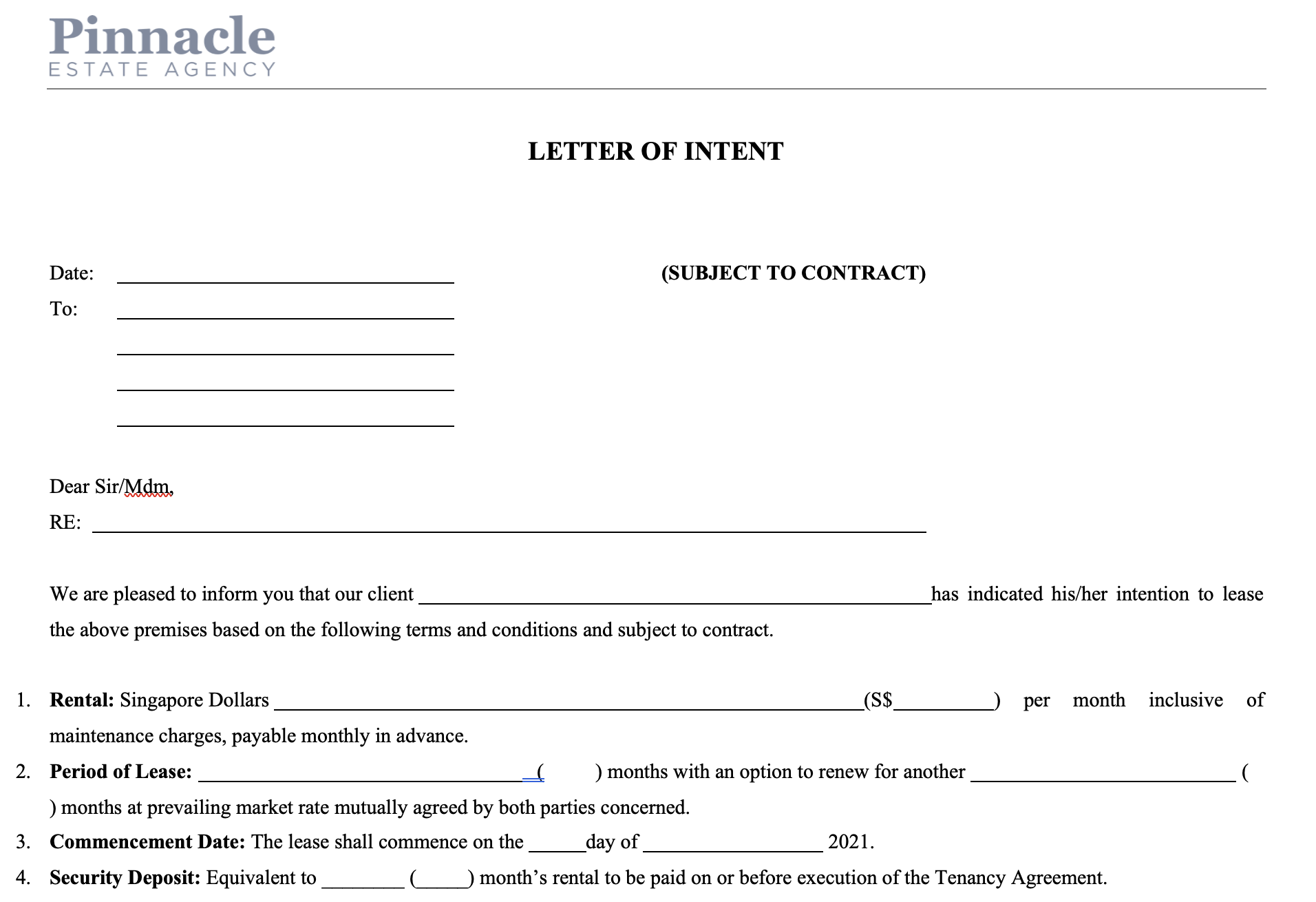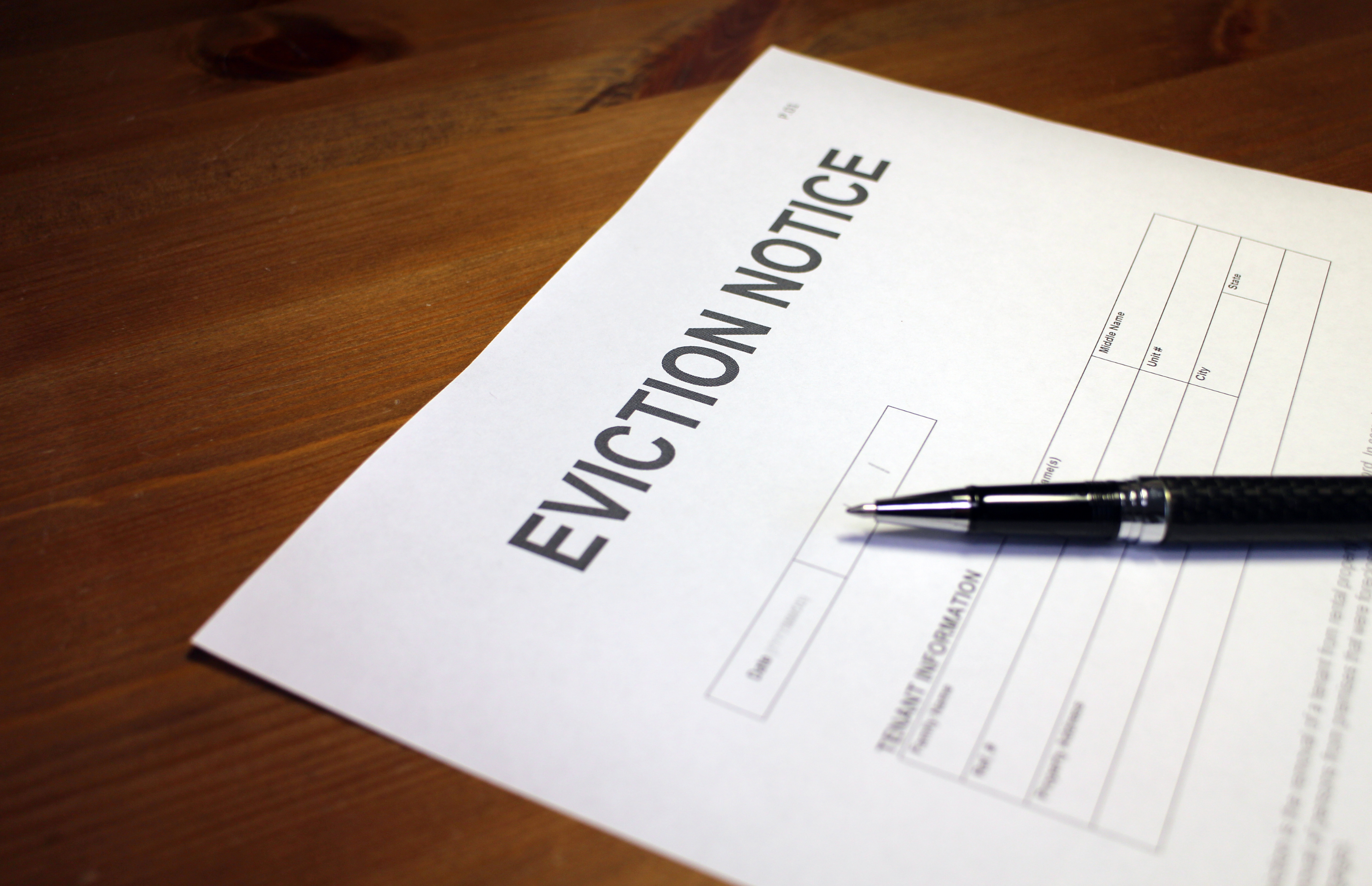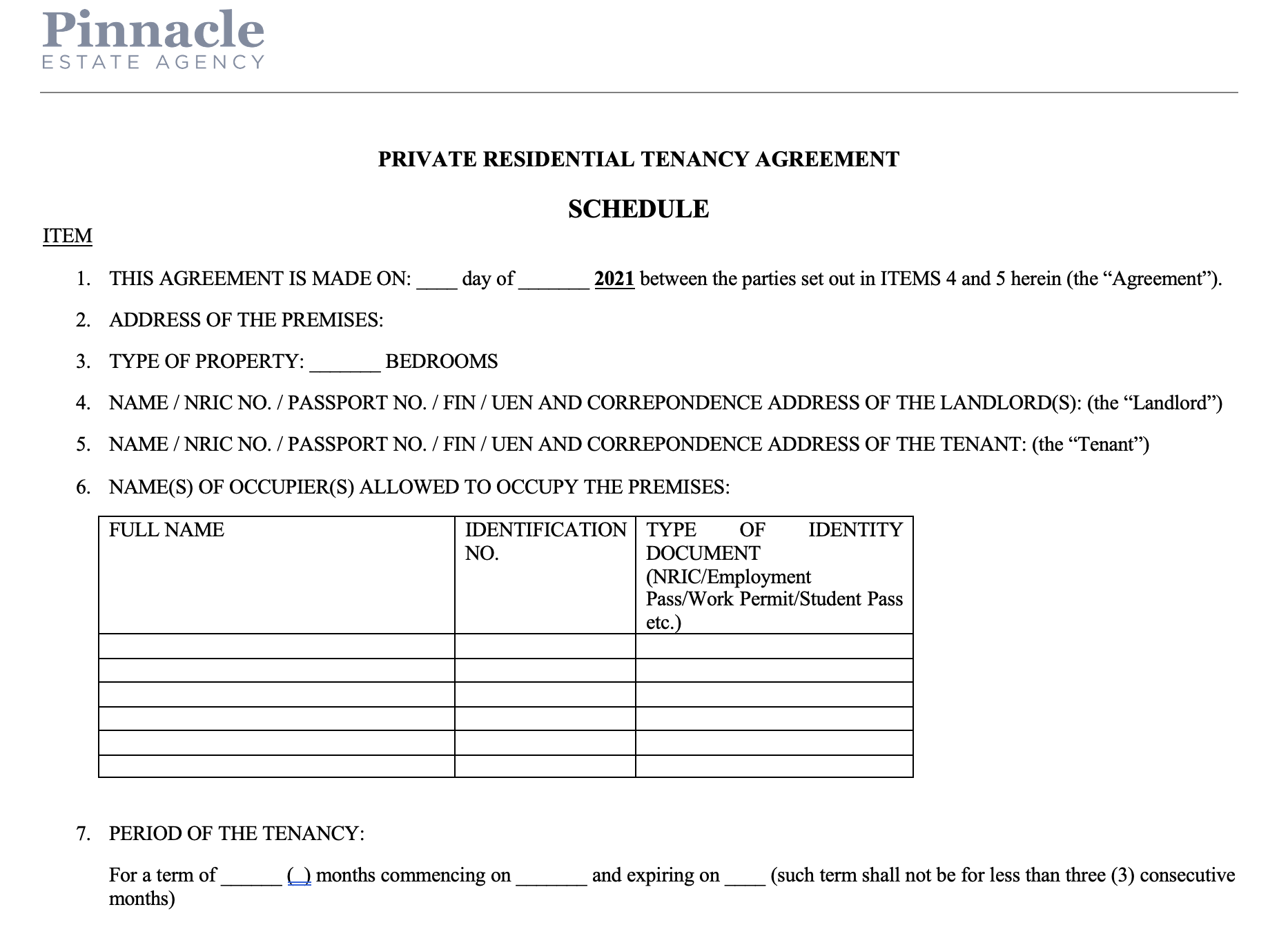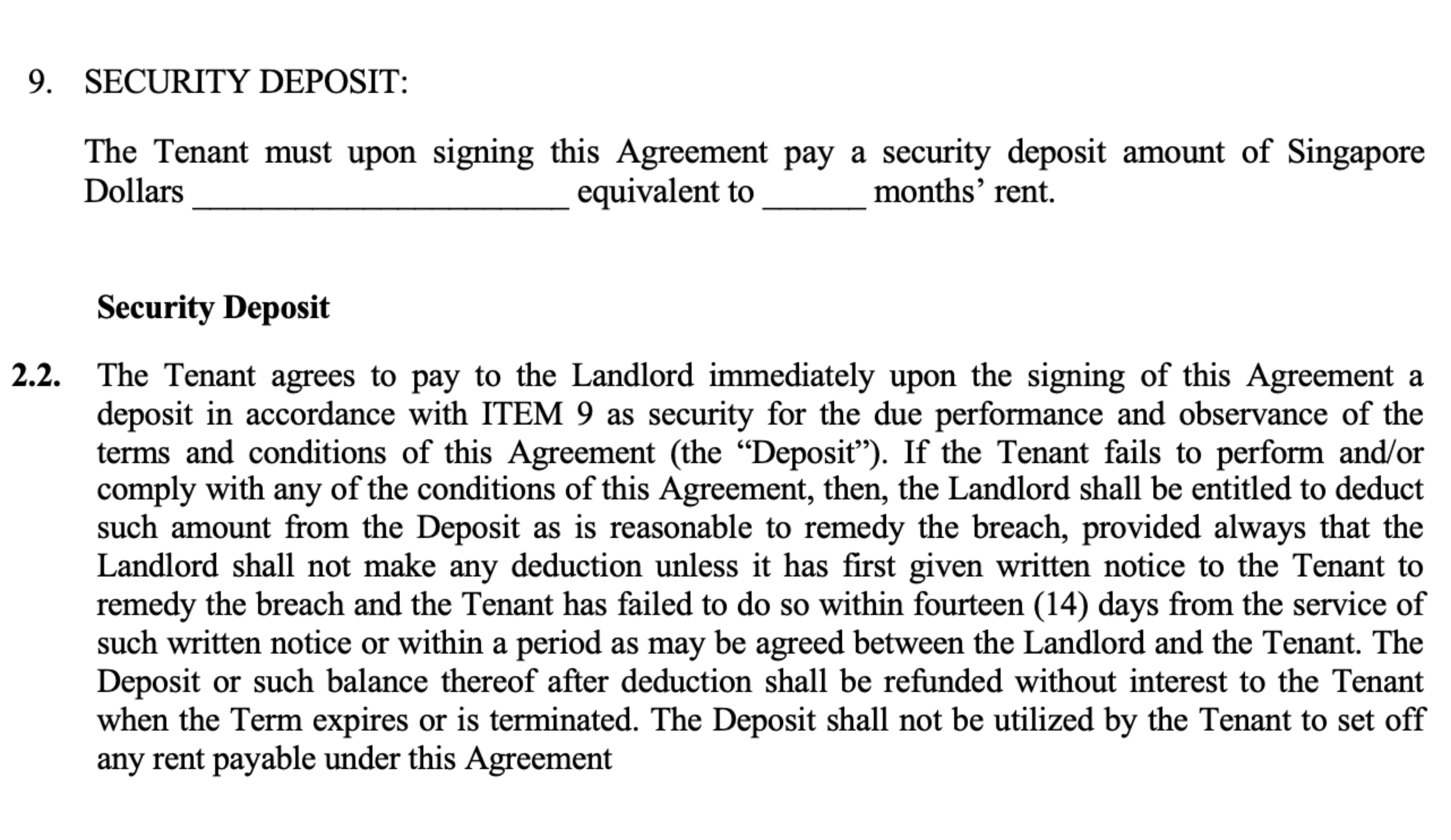Seven (7) Clauses in Tenancy Agreement That You Should Pay Close Attention To
This article discusses the importance of having a Tenancy Agreement (TA) and the seven (7) most important clauses that landlords and tenants should pay close attention to in order to avoid making a mistake
Table of Contents
The Importance of Having a Tenancy Agreement (TA)
What do Tenancy Agreements typically include?
Clauses in a Tenancy Agreement That Need Close Attention Before Signing:
Free Downloadable Tenancy Agreement Templates for Your Use
Frequently Asked Questions on Tenancy Agreements
The Importance of Having a Tenancy Agreement (TA)
A Tenancy Agreement is basically a contract between a landlord and a tenant. It spells out each one’s rights and duties as they pertain to the tenancy. These contracts are essential for both parties as they are a record of what has been verbally agreed to by the landlord and the tenant. The terms and conditions related to the rental are covered, along with each aspect of the tenancy. This is all to protect and balance out the interests of both parties, the landlord and the tenant.
The TA can be referred to later should there be some confusion or disagreement over things like the when the monthly rental is due, privacy issues, maintenance and repairs. People often assume that these are “standard” agreements, which is why they are often not given much attention. However, it is important that you become familiar with and understand the terms and conditions as well as the clauses set forth in any Tenancy Agreement you are about to sign.
This article will explain the meaning of the seven (7) different clauses that you should pay close attention to in order to avoid making a mistake.
What do Tenancy Agreements typically include?
Tenancy Agreements in Singapore usually include the following:
- Full names of landlord and tenant(s), identity numbers and current address of each
- The tenant’s immigration status and that of anyone else occupying the property
- Address of the rental property
- Start date of lease and the end date
- Amount of rent and whether it includes a maintenance fee, service and conservancy fee and/or property tax
- Payment schedule of rent and other details
- Additional fees tenant is responsible for, like Stamp Duty, utilities and telco fees
- Inventory list of everything in the unit that the tenant will have use of, like furniture, fixtures and fittings, along with their condition
- Details related to maintenance and repairs
- Landlord’s covenants, like providing a quiet environment for the tenant, maintenance fees, fire insurance and property tax payments
- Tenant’s covenants related rent payments, no subletting, no pets, parking spaces, no smoking and keeping everything in good condition
- Notices
- What landlord is indemnified against
- Rent suspension
- Termination of lease
- Vacating the property at the end of the lease
Although this is an extensive list, don’t be discouraged. Below, we’ve narrowed it down to the seven (7) most important clauses that you need to pay close attention to:
Clauses in a Tenancy Agreement That Need Close Attention Before Signing:
|
Tenancy Agreement Clauses |
What are they? |
|
Diplomatic Clause |
This clause permits the tenant to break their lease after a stated period of time, which is typically 12 months, without incurring an expensive penalty if the tenant has to depart Singapore for good. |
|
Security Deposit |
The security deposit clause spells out the terms for money to be deducted should there be a need to repair or replace damaged items when the lease ends and the tenant moves out. |
|
Maintenance & Repairs |
This clause says that tenants are responsible for paying repair and maintenance costs below a stated amount after the typical 30-day problem-free period has passed. |
|
Inventory List |
This clause is a detailed list of all the furniture, appliances, fixtures, and fittings that come with the property, along with a description of their condition. |
|
Sale with Tenancy |
This clause says whether or not the sale of the property would be subject to tenancy. If not, and the property sells to a new owner who wants to move in, the Tenancy Agreement is terminated, and the tenant must move out. |
|
Privacy & Access |
This clause says that the landlord must get permission from the tenant before entering the property. There are exceptions to this in which the landlord is permitted to enter the premises while the tenant is at home. |
|
Maintenance of Air-conditioners |
This clause spells out who shall be responsible for the quarterly servicing of the air-conditioners and top up gas. It also spells out who shall be responsible should there be any breakdown, repair, and replacement of parts and for the chemical cleaning of the air-conditioners. |
It must be emphasized that if you sign a Tenancy Agreement without a full understanding of what the clauses mean it can put you at a disadvantage. If you have any doubt about what you are agreeing to in any of the clauses, you should have your property agent or landlord provide clarification.
If either one says to just ignore something, don’t do it because this could cost you in the end. Tenants sometimes get into disputes with their landlord, and that is when the terms and conditions of the Tenancy Agreement come into play.
1. Diplomatic Clause
Expatriates who are renting a property on a two-year lease must make sure the Diplomatic Clause is in the Tenancy Agreement. Most standard templates include this, but you need to make sure because some landlords are happy to take advantage of a naïve tenant.
The Diplomatic Clause usually takes effect midway through the lease, so if you are on a two-year lease, it would take effect after the first year. This clause permits you to break your rental agreement without being heavily penalized under certain circumstances. If you have to leave Singapore due to an unexpected posting to another country, you have a right to break your lease agreement by invoking the Diplomatic Clause. However, you must give some advance notice under this clause (usually two months) because the landlord needs ample time to find another tenant.
All you would be required to pay would be to reimburse the agent fee, which would be calculated on a pro-rata basis. For example, if you invoke the Diplomatic Clause and give notice 16 months into a two-year lease, by the time you move out you will have lived there 18 months. Therefore, you will be required to reimburse six months, or 25% of the agent fee that your landlord paid their agent. To make sure you are paying the correct amount you have a right to see the receipt for the commission your landlord paid their agent whether the amount is stated in your Tenancy Agreement or not.
2. Security Deposit
When signing the Tenancy Agreement, you will be asked to pay a security deposit on the unit you rent. For one-year lease, the amount is usually the equivalent of one-month’s rent and for a two-year lease, the amount would be two-months’ rent. If you signed a Letter of Intent (LOI) and paid a good faith deposit at that time, that money can be converted into the security deposit by the landlord or their agent.
When the lease ends, money is deducted from the security deposit if any items are damaged or goes missing during the tenancy. The standard clause does not permit the security deposit to be used for rent payment(s) unless this has been agreed to by the landlord.
The security deposit clause typically spells out the terms for money being deducted to cover costs related to repairing or replacing anything that’s been damaged. Some allowance is given for normal wear and tear, which occurs over time.
For example, wall paint will fade over time, so this would be considered normal wear and tear and the landlord should not feel entitled to deduct money from your security deposit. However, if your friend or relative comes over for dinner and breaks a dining room chair, the landlord is justified in deducting money from your security deposit to repair or replace the chair.
You must make sure that the clause is abundantly clear in stating the deadline for refunding the security deposit. Generally, you should get your security deposit back at the end of your tenancy when returning the keys if there are no repairs or replacements required. However, if the landlord does have work to do, like cleaning or repairing appliances, the clause usually states a one- or two-week waiting period after the tenancy ends before returning the deposit. This gives the landlord time to determine what it will cost to make the needed repairs or buy replacements.
3. Maintenance & Repairs
Make sure that you carefully check the clauses related to the maintenance and repair of appliances, so that you know how much money you would be liable for. Tenants are liable for minor repairs resulting from wear and tear. This is to motivate tenants to maintain the property to keep it in good condition. The standard Tenancy Agreement requires tenants to pay for maintenance and repairs costing less than $150 to $300. These would be for such things as repairing the kitchen faucet and replacing light bulbs.
If the repair costs more than the amount stated in your Tenancy Agreement, the landlord is required to pay the amount remaining. For example, if the clause says that you are liable for paying up to $200, but if the stove needs to be repaired at a cost of $250, you’ll need to pay $200 towards the repair and your landlord will need to pay the balance of $50.
Also, the clause will likely state a grace period for the tenant to report any defective items, which is typically the first 30 days of the start date of the lease. These defects could be anything from a malfunctioning air-conditioner, leaky pipes to faulty electrical wiring or sockets. During this time, you can report these defects to your agent, your landlord’s agent, or ask your landlord directly to make the repairs without you paying anything out of pocket.
It is up to you to take photos of these issues and include those when you send your report to either your agent or landlord. And remember, this must be done within the allotted time and you can send the report via a time-stamped email and/or another type of recorded message. The clause should clearly state that the landlord is responsible for taking care of these issues if they’re reported within the designated grace period. This gives you the assurance you need that you will not be required to pay for any damage caused by a prior tenant.
You need to know that the repair or replacement of parts involving electrical wiring, a concealed water heater and sanitary piping are not considered minor repairs and would not fall under that clause.
4. Inventory List
This clause lists all the items that will remain in the property for the tenant’s use. These include things like furniture, appliances, fittings and fixtures.
As the tenant you must check that every item listed is in fact in the unit you’re renting. It’s important that you very carefully check this list to make sure that everything is there and that it is in good working condition. If you find any faulty items, you need to let your landlord or landlord’s agent know in writing, so he/she can get it repaired or replaced.
This also gives you an opportunity to ask the landlord to remove certain items of value if you do not want to take the risk of them breaking or being damaged.
You may also want to take photos and make a note of the brands and model numbers of certain items. There have been cases in which an unscrupulous landlord used the inventory list to defraud tenants. The last thing you want is for your landlord to demand a replacement for an ultra-wide $5,000 LG flat screen 8K OLED TV, when the TV in the unit is indeed a 40 -inch Samsung TV that costs about $599.
Making a note of all the details will protect you against a landlord out to cheat you by insisting you swapped out an appliance for a cheaper one and demanding that you pay for the one that he/she claims is missing.
The tenant or their agent can check the condition of everything in the property, with the idea of asking the landlord to make things right. To persuade him/her to do this you need to have detailed notes and photos showing the condition of the following:
- Appliances: not working, parts missing or missing altogether, damaged or dirty
- Furniture: torn or worn upholstery, burns, scratches, missing parts, etc.
- Curtains and drapes: torn, holes, stains, etc.
- Lighting fixtures: broken, rusty, stains, inoperable, etc.
- Windows: broken glass or frames, missing or inoperable locks
- Doors and locks: scratched, peeling paint, discoloured, inoperable locks
- Walls: nails, hooks, stains, scratches, holes
- Ceilings: cracked plaster, stains, peeling, holes, other damage
- Floors: stains, scratches, burns
- Carpeting: stains, torn, snags, holes, burns
5. Sale with Tenancy
Properties in Singapore commonly change hands, which is why this is such an important clause in a Tenancy Agreement. You need to carefully read this clause to find out when the landlord can start showing the premises and whether selling it is subject to tenancy. If the clause states that the sale would not be subject to tenancy you as the tenant could be asked to vacate the property when it is sold, so the new owner can move in. On the other hand, if selling the property is subject to tenancy, you can remain there until your lease expires. The new owner would be required to honour your tenancy, so they would have to wait to move in.
6. Privacy & Access
Most people treasure their privacy, so we prefer to be phoned in advance when a friend or family member plans on stopping by, and we certainly expect this of our landlord. The privacy and access clause in your Tenancy Agreement is there to protect your privacy by requiring your landlord to get your permission before they come to the property.
Furthermore, this clause spells out the reasons why the landlord is permitted access to the property while you’re living there, which includes:
- Making repairs or renovations
- Showings to future tenants
- Showings to future buyers
The clause should spell out how far in advance your landlord is required to notify you of their plans to stop by. This is to keep him/her from showing up on your doorstep at the last minute.
After all, no one wants their landlord popping over when they’re in the middle of Sunday morning breakfast with the family, or worse yet when they’re working out in their skivvies.
7. Maintenance of Air-conditioners
Tenants are often faced with air-conditioner problems, which is why this clause is included in the Tenancy Agreement. The terms that commonly apply are for the tenant to hire a reliable air-conditioner service company to come out and service the equipment every three months. The tenant must also top-up the gas when necessary. The landlord is responsible for having the air-conditioner chemically cleaned whenever its needed and for handling any breakdown, repairs and the replacement of parts. This includes the compressor as long as the damage is not the result of the tenant’s negligence.
Free Downloadable Tenancy Agreement Templates for Your Use
You are free to read or download the following templates for your own use:
- Tenancy Agreement for Private Residential Property Template
- Tenancy Agreement for HDB Flats Template
- Bonus! Room Rental Agreement Template
Frequently Asked Questions on Tenancy Agreements:
1. Is it a legal requirement to have a Tenancy Agreement (TA)?
While a Tenancy Agreement may not be legally required to rent property from your landlord, it is highly recommended. When you have a signed rental TA, there is a written record of everything agreed to between the parties, which protects both the tenant and landlord. So, if down the road there is a dispute, it can be settled peacefully by referring to the agreement.
Without a TA, things can get problematic. The landlord might demand that the tenant move out on the spot without giving sufficient notice or refuse to refund the security deposit. On the other hand, the tenant could perform illegal activities in the home, which the landlord may be held responsible for by the authorities without any indemnity by the tenant.
2. Who is responsible for preparing the Tenancy Agreement?
There is no definitive rule on which party prepares the Tenancy Agreement. But most of the time the landlord or their property agent takes responsibility for preparing it. Sometimes a corporate tenant may want to use their own version of a TA, but these are typically standard. If a landlord wants to compare their version with ours, they can download ours for free.
3. What is the cost of drafting a Tenancy Agreement?
There is no need to pay anything because it’s unlikely that you would need a lawyer. You are free to download our templates at https://pinnacle.sg/agreements-checklists.
4. Can I write my own Tenancy Agreement?
Yes you can however there really is no need because you can simply download our template by going to our website at https://pinnacle.sg/agreements-checklists.
5. Does the Tenancy Agreement need to be stamped and if so, who pays?
Yes, Tenancy Agreements must be electronically stamped in order to be a legally binding document in the eyes of the authorities and the Stamp Duty must be fully paid. The tenant is responsible for having the document stamped and for paying the Stamp Duty. Once this is done the TA is put in effect and is binding. A Tenancy Agreement that has been signed electronically must also be electronically stamped.
6. What is the charge for Stamp Duty?
For a lease of no longer than four years, the Stamp Duty would be 0.4% of the total rent being paid for the entire period. For example, a three-year lease (36 months) with a S$2,200 monthly rent would incur the following Stamp Duty:
Total rent to be paid over 36 months: S$2,200 x 36 = S$79,200
Stamp Duty to be paid by tenant: S$79,200 x 0.4% = S$317
7. When should the tenant pay the Stamp Duty?
A Tenancy Agreement is supposed to be duty stamped with the Stamp Duty paid before the agreement is signed by the tenant and landlord. But this rarely happens, so you can wait and sign the Tenancy Agreement until after it’s signed.
However, the Stamp Duty must be paid within 14 days of signing the Tenancy Agreement if it is signed in Singapore. Or, if the Tenancy Agreement is being signed overseas the Stamp Duty must be paid within 30 days of its receipt.
Otherwise, there will be penalties.
8. Where do tenants go to pay the Stamp Duty and to get the TA stamped?
In the digital age, everything is so much easier. Tenants can get their Tenancy Agreements e-stamped online right here.
9. What happens if the tenant does not pay the Stamp Duty?
If that occurs, the Tenancy Agreement is invalid and won’t be recognised by the authorities. If the tenant and landlord get into a dispute at some future date, the tenant may end up with no legal recourse in the matter.
Failure to pay the Stamp Duty is like tax evasion in the eyes of the law. Legal action can be taken against a tenant who fails to pay the Stamp Duty or doesn’t pay it on time.
These are the penalties for paying late:
- Up to 3 months late: $10 penalty or an equivalent amount of the Stamp Duty owed, whichever is greater.
- More than 3 months late: $25 penalty or 4 times the amount of Stamp Duty owed, whichever is greater.
We sincerely hope this guide helps you to understand the most important clauses in a Tenancy Agreement, so that you can get through the rental process with a lot less anxiety.
Best of luck!
At Pinnacle Estate Agency, we strongly believe in sharing our real estate knowledge to the public. For more content like this article, check out our Singapore Property Guides.

